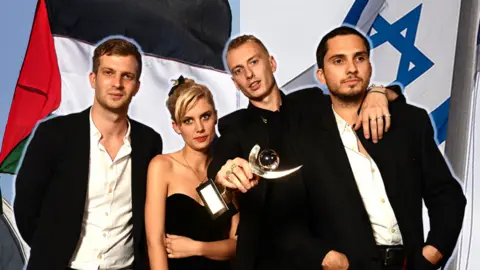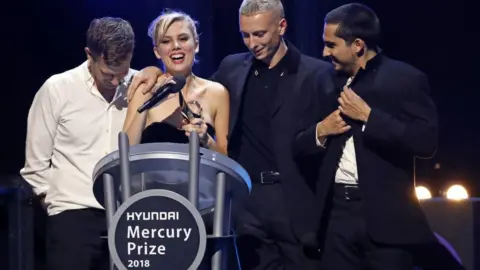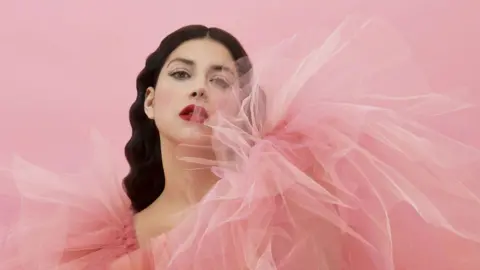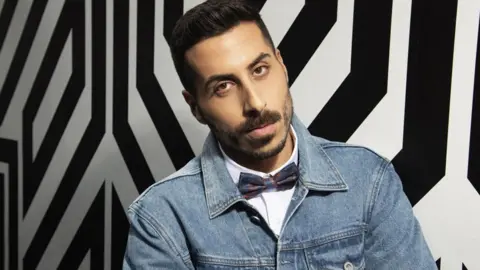Eurovision Song Contest 2019: Why Wolf Alice are boycotting
 Getty Images
Getty ImagesWolf Alice aren't a band you would ever expect to interview about the Eurovision Song Contest.
The group's guitarist Joff Oddie describes Eurovision as "a wonderful idea, if a bit naff at times".
But rather than being a secret fan, Joff is one of several artists who've been calling on people to stay away from this year's event in Israel.
He supports the Boycott, Divestment and Sanctions (BDS) movement, which wants a complete cultural boycott of Israel over its treatment of Palestinians.
"This is the most controversial Eurovision Song Contest that's ever happened," says Joff.
He's DJing at an anti-Eurovision gig in London this weekend, which is due to take place while the grand final is being broadcast.
"The boycott is like any grassroots movement. Instead of feeling disempowered, we can feel empowered."
 Getty Images
Getty ImagesThe Israeli government says BDS opposes Israel's very existence and is motivated by anti-Semitism.
The EBU, which produces Eurovision, says it "takes all necessary steps to safeguard the non-political character of the event".
As yet, no country has pulled out of Eurovision as a direct result of the contest being held in Israel.
41 countries are competing at this year's contest in Tel Aviv, with some participants aware of the controversies surrounding the event.
 Efi Gousi
Efi Gousi"I perform for people. I never perform for governments," says Greece's entry Katarine Duska.
"I think it's a beautiful event that stands for beautiful things, for friendships and for cultural diversity."
In recent months, many high profiles names have come out to either support or oppose a boycott of Israel.
This year's entry for the host country, Israel's Kobi Marimi, says Eurovision is "not a political contest".
"I'm sad about those protests. I think we should focus on music and love."
 Eurovision
Eurovision Noga Erez is an Israeli musician and producer who performed at Meteor Festival, which Lana Del Rey pulled out of, last year.
She says that just going to Israel is political, "even if you come here without any connection to politics".
"There's such a complexity to any situation, especially in a place like this. It's one of the most complicated places in the word."
She says she understands why some artists may not play in Israel due to outside pressure, but hopes they "know all the facts" and "what it means" to boycott.
Noga's also unconvinced whether cultural boycotts actually achieve their aims - but accepts they "make a lot of noise and bring awareness".


